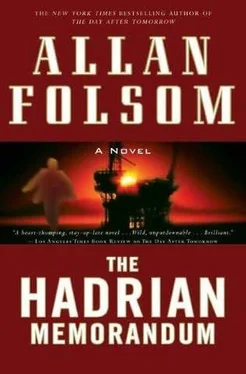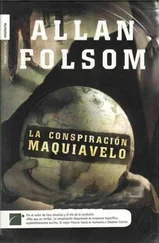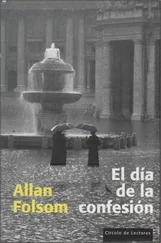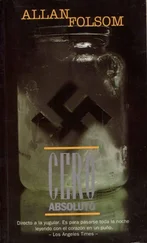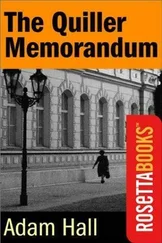Silence.
“This is One. Four isn’t answering.”
9:11 A.M.
Anne Tidrow watched Marten enter Hall 2D, then go into the boarding area, looking at the gate numbers as he went. No one had had to tell her he’d been lying about his British Airways flight to London and his connecting flight to Manchester. In the minutes before he’d seen her watching him from the upper balcony, she had seen him. He’d been about to enter a café area in Hall 2B when he’d stopped a uniformed Air France flight crew and asked directions. One of them had pointed in the direction of Hall 2D. Marten had nodded, then thanked them and gone into the café, where he’d purchased coffee and a croissant and soon afterward made a call on a cell phone.
9:15 A.M.
She saw him enter the section at Gate D55 and join the line of passengers boarding flight 1734 for Berlin. Ninety seconds later he handed an Air France gate attendant his boarding pass, then entered the jetway and disappeared from view.
A breath and she lifted her hand to her mouth as if to stifle a cough.
“This is Four. I’m in Hall 2D. I thought I saw him come this way, then he took the escalator down and I lost him.”
“ Roger, Four .” The voice of One came back.
Anne Tidrow watched for a moment longer as the last of the passengers slipped into the jetway and the Air France people closed the door behind them. She lingered a few seconds, then walked off. As she did she took a cell phone from her purse, flicked it open, then tapped in a number and waited for it to ring through.
Past lives, fond memories, old friends.
By the time Marten reached Berlin and entered the city-by taxi, private car, public transportation, or even if he walked-she would know where he had gone and where to find him.
BERLIN TEGEL AIRPORT. STILL FRIDAY, JUNE 4. 11:15 A.M.
Nicholas Marten exited Air France flight 1734 in a group of passengers. Suitcase in tow, he left the Gate A14 area and passed through the green NOTHING TO DECLARE customs archway into the crowded arrivals area, where people were gathered to meet travelers from incoming flights. Two minutes later he was outside in warm sunshine and walking toward the taxi area. A dozen paces more and he moved to the edge of the curb away from sidewalk traffic. He gave a quick glance around and unzipped the upper pocket on his suitcase and took out the dark blue throwaway cell phone. By now Theo Haas’s private phone number was etched in his memory. He punched in the number and waited. The phone rang four times, and then a recording clicked on. A husky male voice that he took to be Haas’s made a brief announcement in German. The recording ended and there was silence, followed by the usual beep signaling the caller to leave a message. For an instant he thought about identifying himself and mentioning Joe Ryder’s name, then decided against it and clicked off. Who knew what other party might retrieve Haas’s calls-wife, girlfriend, house man, secretary? Maybe he talked about personal business with people he knew well, maybe he didn’t. Besides, there was every chance Joe Ryder hadn’t yet reached him. Or maybe he’d tried and like Marten got only a recording. No, Marten thought, better to wait, call him a little later in the day. Immediately he clicked off, slipped the phone into his coat pocket, then walked off toward the taxi queue.
A gray-haired, matronly woman wearing a lightweight summer coat watched him go. She had been in a group of others waiting at Gate A14 to meet arriving passengers and had followed him when he left. She’d seen him step to the curbside, take a cell phone from his suitcase, and make a call. Now she followed him again. Safely and at a distance. She stopped as he entered the taxi line, then watched as he got into a black Mercedes Metrocab. Number 77331.
11:35 A.M.
MADRID, BARAJAS INTERNATIONAL AIRPORT. SAME TIME.
Tired, but happy to be finally home after a flight delay of nearly two hours in Paris because of mechanical problems, Marita Lozano and her medical-student charges-Rosa, Luis, Gilberto, and Ernesto-left Iberia baggage claim, passed through the customs area, and went out into the arrivals hall on their way to the Metro that would take them into the heart of the city.
The area was crowded with friends, relatives, business associates, and others gathered to meet arriving passengers. Among them were perhaps a dozen limousine drivers, most of them in dark suits and white shirts, holding cardboard signs that were hand-lettered with the names of the clients they’d been hired to pick up.
“Marita!” Rosa was the first to notice. “A sign with your name.”
Puzzled, Marita looked to the bank of limousine drivers. A handsome young man was holding a sign that read DR. LOZANO.
“Some other and richer Dr. Lozano.” Marita said with a laugh and kept walking.
As they passed, the man suddenly approached. “Marita Lozano?”
“Yes.”
“I have a limousine to take you into the city.”
“Me?”
“Yes, and your friends.”
“I don’t understand.”
He smiled. “It was paid for by the oil company in Bioko. To thank you for your work there and help compensate for your trouble with the army. I was instructed to take each of you to your homes.”
Marita looked at him carefully. Something didn’t feel right.
“That’s very nice,” she said politely. “But I think we’ll just take the Metro.”
“Please, doctor, the company insists. You have all had a very long trip.”
“I don’t know.”
“Oh, come on, Marita.” Rosa giggled. “We’re all tired. It’s very nice of them to do this.”
Luis grinned. “Who wants to take the Metro when we have a limo?”
“Nobody,” Ernesto added.
Marita hesitated a moment longer, still unsure.
Rosa pressed her again. “Marita…”
Finally she gave in. “Alright, Rosa, we’ll take the limo.”
“Good.” The driver smiled warmly, then took her bag and Rosa’s and led them toward the exit.
BERLIN, HOTEL MOZART SUPERIOR,
94 FRIEDRICHSTRASSE, ROOM 413. 1:35 P.M.
Freshly showered and shaved, Nicholas Marten stood in the window looking down at the street below. He was barefoot and bare chested, wearing jeans and nothing else. The dark blue cell phone was in his hand. He hesitated for the briefest moment and then, for the third time since he’d checked into the hotel ninety minutes earlier, he called the number President Harris had given him for Theo Haas.
Again it rang through. After the fourth ring he again got the husky-male-voice recording. Again he clicked off.
“Damn it,” he swore angrily. Where the hell was Haas? What was he doing? When would he be home?
Suddenly it occurred to him that the Nobel laureate might be traveling and not in the city at all. Then what? Try to have the president or Joe Ryder track him down? That could take days, even longer. In the meantime, where were the photographs, assuming Father Willy had indeed sent them to his brother? Where? Sitting in a branch of the Berlin post office? In Haas’s home, just lying around, opened or unopened? Or did Haas have them with him? Was he at this moment preparing to reveal them as only an irascible world-famous writer could, and most likely would?
As quickly Marten thought of something else: that maybe Conor White’s people or operatives from the Equatorial Guinea military hadn’t been as slow to put Father Willy and Theo Haas together as brothers as he’d first thought. Maybe one group or the other had already reached him. If so he could be in grave danger or even dead. In what could only be described as an urgent, near-involuntary reaction, he lifted the phone and punched in Theo Haas’s number again.
Читать дальше
